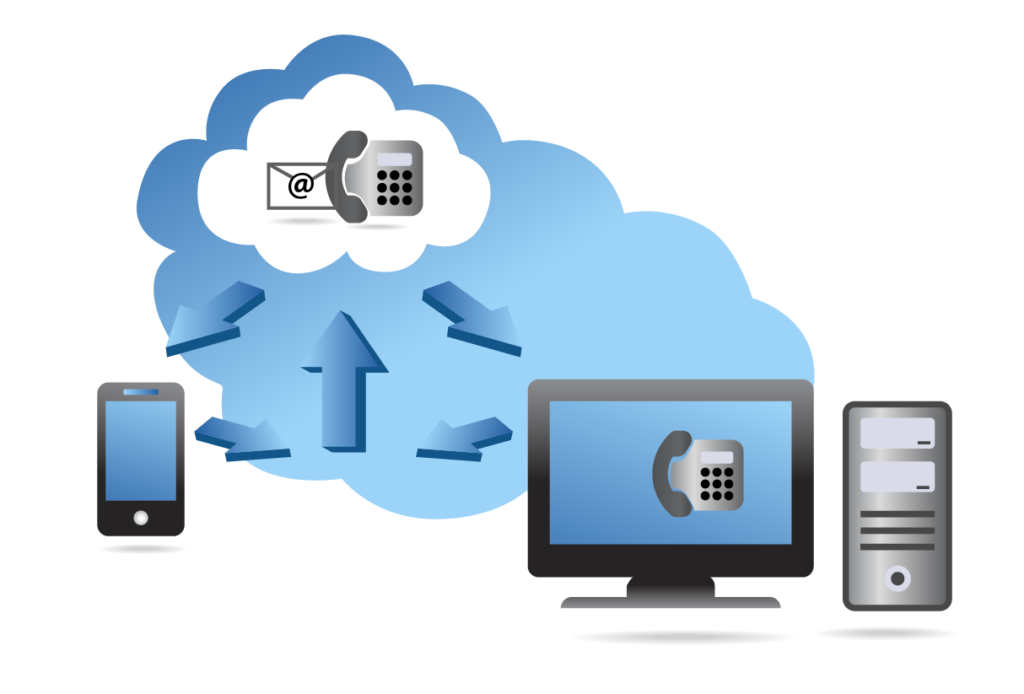Business phones, much like personal phones and home landlines, have evolved tremendously in the last 20 years. So much so that many of you are probably using your cell phone for some or all of your business communication. There are compelling reasons, however, to maintain a business phone system and, even more importantly, to choose a cloud-hosted phone system. Let’s take a look.
Brief History
Phone systems, for many years, were installed on-site with digital phones connected to them. Either individual lines or a PRI line (which enables a traditional phone line to carry multiple lines of voice and data) connected the system to the public phone network. As the internet became more reliable, many phone companies switched to having these on-premises phone systems hand–off the call to a provider over its internet connection. This kept the on-premises system working exactly as before but simplified the phone providers’ internet and voice customers. Eventually, companies started seeing that they could do the same with SIP providers (who offer the virtual version of an analog phone line) and save money over using the traditional phone providers’ pricing structure.
Once companies saw that the internet could reliably carry phone traffic, more carriers started offering a cloud-hosted phone solution where the phone server was no longer on-site, but in a centralized data center, and the phones connected directly to the internet. This provides the advantage of only needing one “server” regardless of how many locations you have. It also provides better protection and uptime over an on–premises system. Today, although all major vendors offer a version of their system that is hosted, many typically still sell an on-premises version as well.
Advantages of a Business Phone System
The main reason to continue using a business phone is for the flexibility to, among other things, customize features unique to your business. For example, most of your company’s business logic or customer experience can be programmed right into the phone system. Do you like to have calls answered by a live person and then transferred to a specific user? Do you prefer a general greeting with some options to get to the correct department that has one or more users waiting to answer the call? Do you have a call center that may need to have people wait on hold until the next representative is available? All of these functions are available with a business phone system.
Some companies may also require call recording or call logging for quality assurance, training, or legal reasons. This may be relevant for your industry and an important aspect when considering a business phone system. In addition, many systems provide conference capabilities and application integration such as CRM (Customer Relationship Management) as well. Call helpdesks utilize CRM to bring up customer records in real time for sales or service.
Why Choose a Cloud-Hosted Phone System
All modern phone systems have the features listed above – and many more that I did not even list. So, why choose a cloud-hosted phone system over an on-premises system?
CapEx vs OpEx
Capital expenditures (CapEx) are designed to be used by a company over the long term whereas operating expenditures (OpEx) are the day-to-day expenses a company incurs to keep the business operational. Like many other services in today’s economy, a cloud-hosted phone system typically has a low installation or deployment cost and is sold on a monthly basis. This means that, for a fixed monthly fee, you can get a new system; and since the system is hosted, you will only have one phone bill.
Simplicity
Many on–premises systems still have a phone vendor (Verizon, Comcast, etc.) and phone provider (ie. Avaya or MiTel reseller), resulting in bills from each. Translating these bills can be a nightmare. A cloud-hosted phone provider usually charges per device or a fixed fee simplifying the cost for providing phone service to the company. One bill. One simple billing structure.
Portability and Availability
Because the system is hosted on the cloud, business phones can be deployed anywhere and on any type of device. So, no matter where the user is physically located, they will still appear to be working at their company’s location. If the business’s main location is offline due to extreme weather or power outage, off-site users are still able to take calls. This can be critical in a situation like a hurricane where a site could be down for days. Having the ability to grab a phone, plug it in to the nearest internet connection, and start taking calls can make or break a business during a crisis. Access to their mobile app or desktop software client version of the phone is another option for users as well.
Scalability
The older on-premises systems required expensive and costly upgrades whenever the system hit certain thresholds. In addition, as equipment aged out, it would need to be replaced periodically causing unpredictable expenses. A cloud-hosted phone system, in contrast, has unlimited scalability. There is no equipment (other than the desk phone itself) to maintain or replace. Hosted systems also can typically support a variety of models of phones and, in some cases, a variety of manufacturers. That way, you are not locked into one brand or system of phone.
Evolution
The next generation of cloud-hosted phone system is even offering more integration options and features. Some now include Teams built into the desktop software client or mobile app. This offers functionality for phone calls, video conference, text and chat.
Security & Privacy
How often have you been out of the office and an urgent email comes in asking you to reach out to a customer? You pick up your cell phone and call the customer to resolve the issue. Now, fast forward to the weekend and that same customer is calling your cell phone off-hours to get ahold of you. With a modern cloud-hosted phone system, you could use an app on your phone to make the outbound call. This would shield the customer from your cell phone number so they would only see your company number. When calls come in off-hours, they can be directed to your voicemail. Also, consider if your employees are storing business-related voicemails on their cell phone. When/if the time comes to terminate or the employee leaves, how do you gain access to this critical business data?
Being able to separate business and work numbers can provide employees with the security they desire. They can respond to customers in a timely fashion without providing personal information like their cell phone number.
Conclusion
The advantages of a business phone system may vary depending on your needs, but they are compelling nonetheless. And, the reasons to choose a cloud-hosted phone system could go on and on from what I’ve highlighted above. The features available today are vast and growing so it’s important to consider how they could improve your current set-up. If you have not looked at your system recently, I encourage you to reach out to us. Each business is unique, so there are no one-size-fits-all business phone systems. Many cloud-hosted phone providers will simply duplicate your network environment with one of their own to get your phones connected. As both a managed service and cloud-hosted phone system provider, Spera Partners is uniquely positioned to review your current phone and network layout and recommend the best fit for your environment. To learn more about the benefits of a proper business phone system, and/or for a complimentary consultation, reach out to us today at https://sperapartners.com/contact-us/ Or, for more information on our hosted phone and paging services, including VoIP and virtual office solutions, visit us at https://sperapartners.com/hosted-phone-and-paging-system/
Brian Hess, President
Spera Partners
Learn more about our Hosted Phone and Paging System Services at https://sperapartners.com/hosted-phone-and-paging-system/














